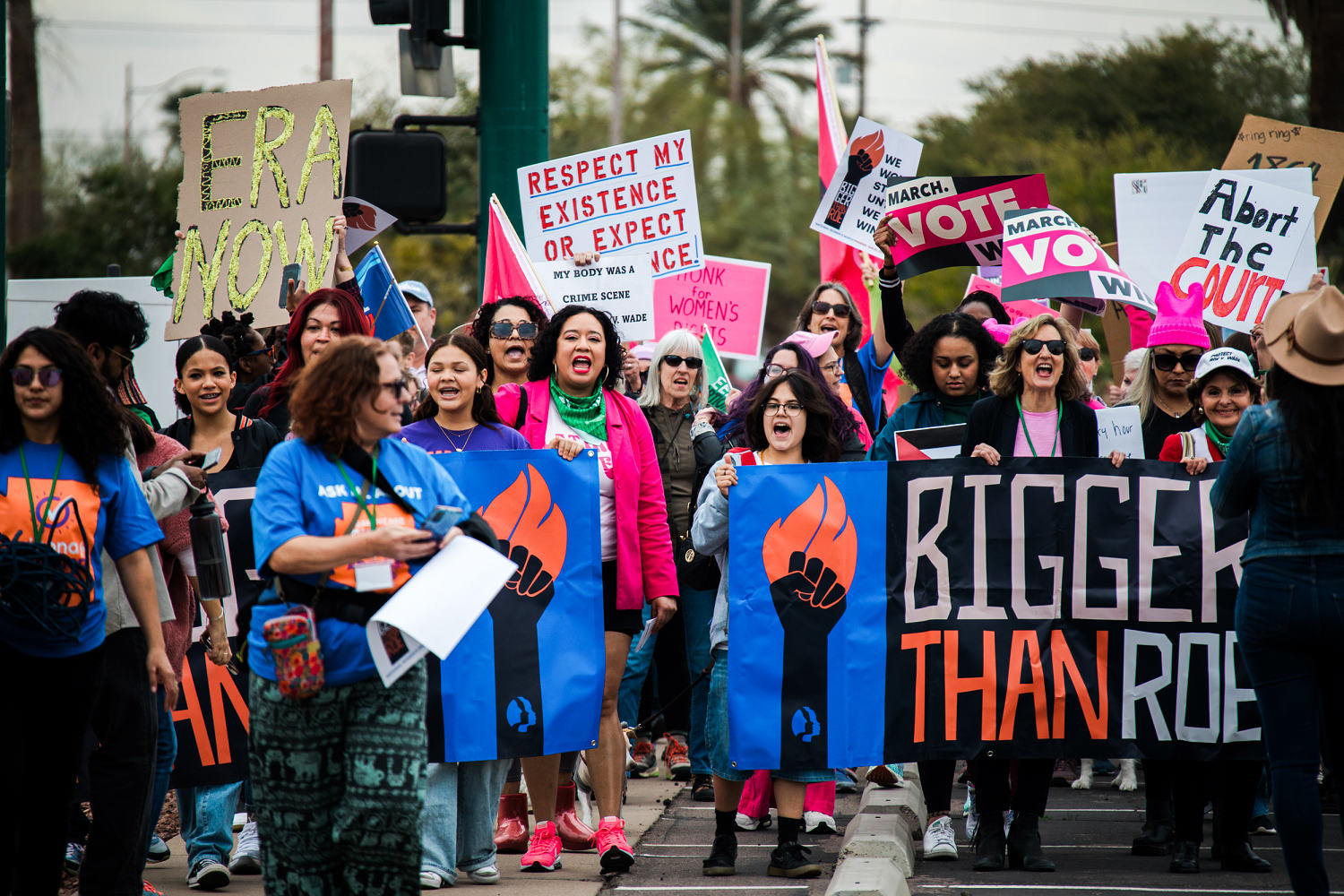PHOENIX — As opponents of abortion rights marched through the streets of Arizona’s capital Friday, organizers and activists on both sides of the issue have an eye on Election Day.
Abortion rights groups are seeking to put a constitutional amendment on the November ballot that would create a “fundamental right” to receive abortion care up until fetal viability, or about the 24th week of pregnancy.
Placement of the measure could help boost Democratic turnout in the state amid both a battleground presidential campaign and a key Senate, a potential boon for President Joe Biden, who has trailed former President Donald Trump in recent Arizona polling.
In the nearly two years since the U.S. Supreme Court struck down national abortion protections, abortion-rights advocates have so far won every race in which the issue has appeared directly on the ballot. Seeking to further galvanize support of reproductive rights, such groups are working in as many as 13 states to place measures this fall to enshrine abortion rights in state constitutions.
But as that effort has expanded, so too has the energy and organization behind efforts to fight them. And the proposal faces meaningful resistance from conservatives in Arizona.
Those passions were on display Friday at the Arizona Right For Life March, where thousands gathered to celebrate their anti-abortion ideals. A shofar was blown, drums were banged and a Catholic priest with a megaphone chanted “ole, ole, ole, ole, pro-life, pro-life.” Activists and organizers were joined by hundreds of children from across Arizona.
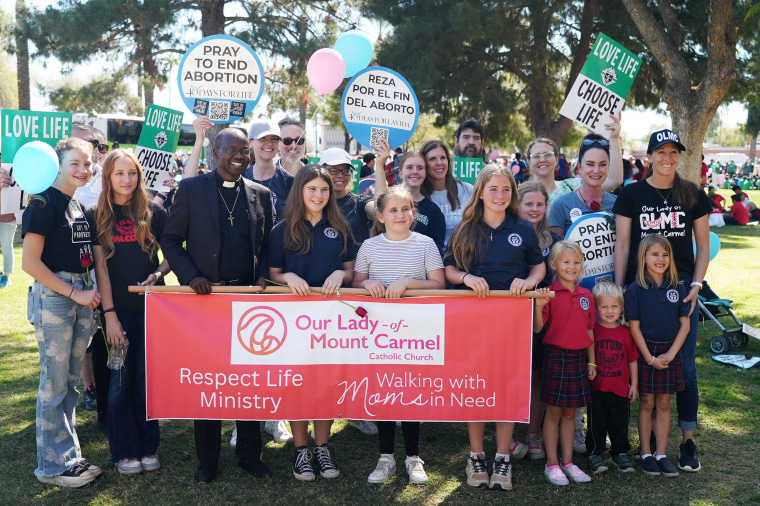
Sister Maria Rose Metzger, a Dominican Sister of Mary, Mother of the Eucharist and high school teacher, brought many of her students to the March For Life.
“The young people, they get it,” she said. “They get it that life is important. They get it that they wouldn’t be here [if] their moms didn’t say yes to the gift of life.”
Metzger says faith guides her life, but she said science informs her opposition to abortion rights. “Life starts at conception — that actually is a science. That’s not a religion or faith thing,” she said.
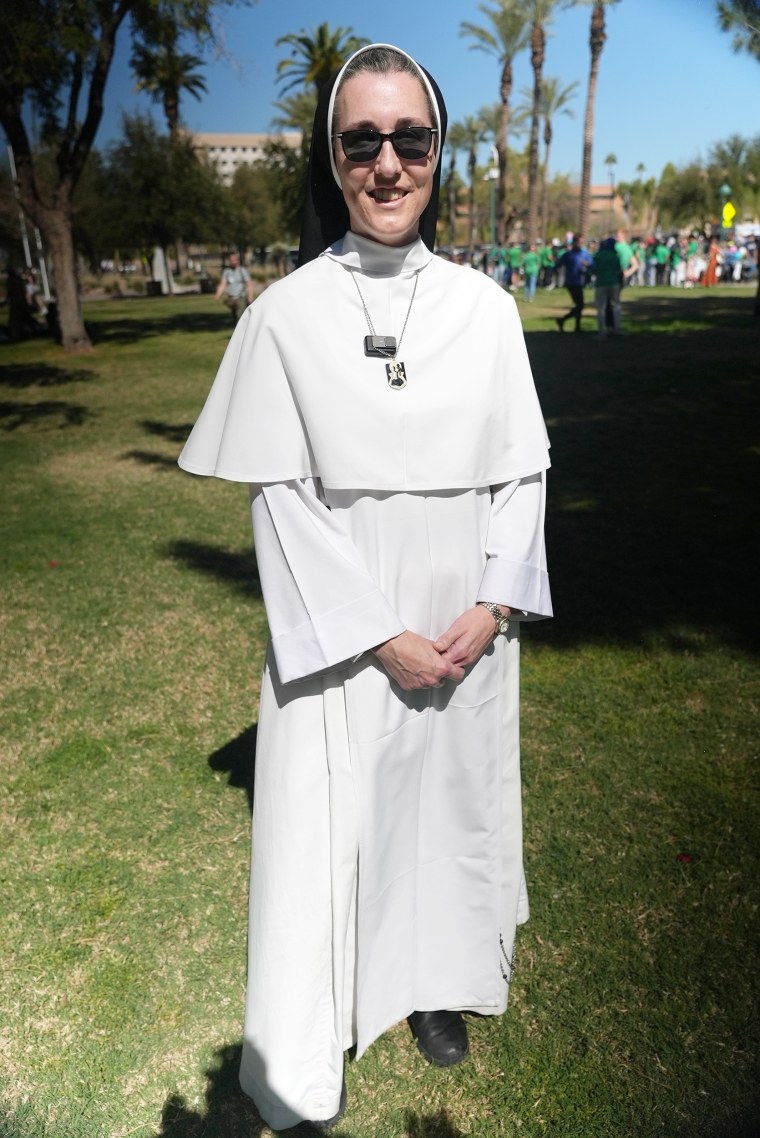
Under current Arizona law, abortion is legal up until the 15th week of pregnancy, with an exception after that to save the mother’s life, but no exceptions for rape or incest.
The ballot measure proposed by reproductive rights groups would extend the deadline before abortion restrictions kick in and expand the scope for exceptions.
To see it placed, the group leading the effort — Arizona for Abortion Access — must gather nearly 384,000 valid signatures by July 3. Its leaders know the path forward will be tough.
“We are aiming to collect more than double the amount of signatures that we need, which puts us between 700,000 and 800,000 signatures,” said Chris Love, a spokesperson for Arizona for Abortion Access. “The signatures are very easy to challenge here in the state of Arizona.”
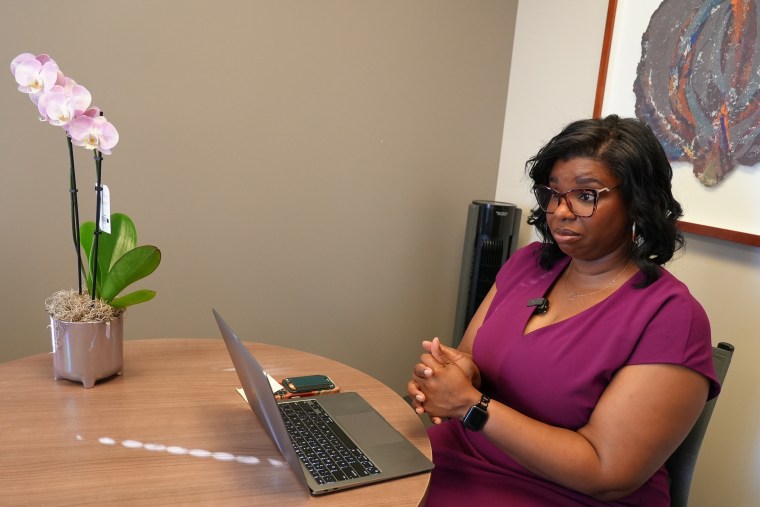
In January, the group said it had collected 250,000 signatures.
Among the many groups countering the effort by Love’s coalition is Arizona Right To Life. The organization says they have a team of lawyers on retainer, waiting to scrutinize each and every signature that’s submitted by the team behind the ballot measure in July. Until then, the group says its plan is to educate Arizonans about the Arizona Abortion Access Act — the formal name of the ballot proposal — in an attempt to dissuade them from signing the petitions in the first place.
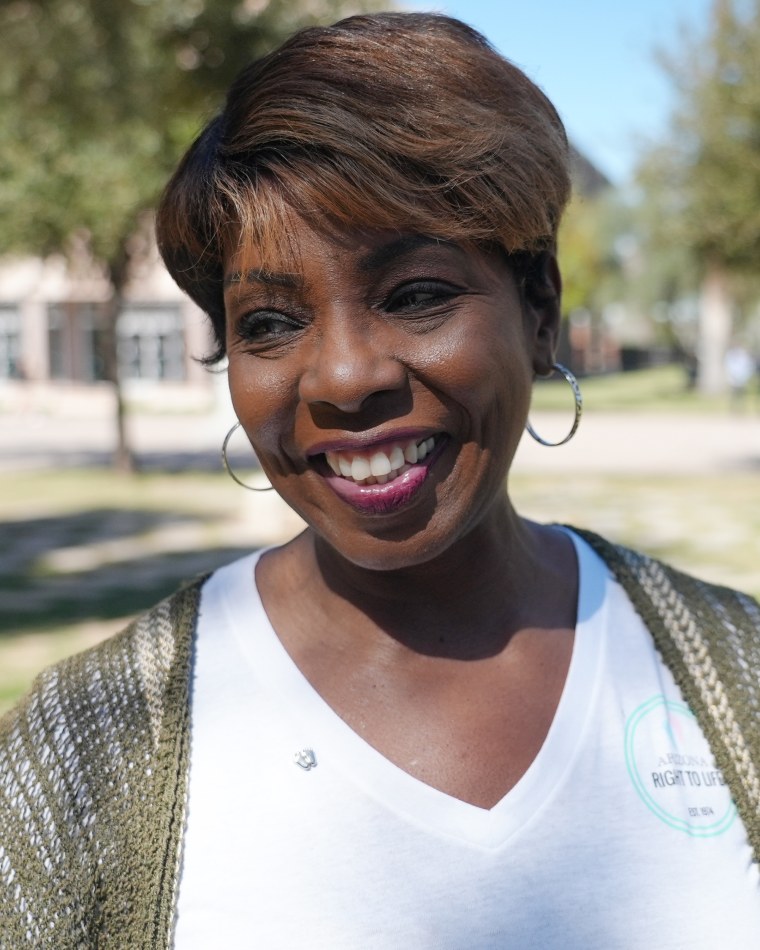
“We basically give them the information that is in the Arizona Abortion Access Act,” said Lori Zee Gray, a board member at Arizona Right To Life who’s in charge of coordinating volunteers for the “Decline To Sign” initiative. The main talking point, she said, is that “signing this petition supports abortion up to birth,”
Love and other supporters of the measure note that’s explicitly not in the measure, which goes up to 24 weeks with exceptions when “in the good faith judgment of a treating health care professional, it is necessary to protect the life or physical or mental health of the pregnant individual.”
Zee Gray’s rhetorical framework echoes that of prominent Republicans, including Trump, who have long accused Democrats of supporting late-term abortions and abortions on demand. It’s a message they hope will counter ballot measure efforts and Democratic candidates supporting abortion rights this fall.
Zee Gray’s group has also focused heavily on the proposal’s exception after fetal viability to protect the “mental health” of a pregnant woman, arguing that it could be subject to broad interpretation that could be applied to permit abortion care.
“It is loose. It is broad,” said Terry LaFrance, a representative from the “It Goes Too Far Campaign,” which is also looking to stop the Arizona Abortion Access Act.
Arizona for Abortion Access has about 3,000 volunteers statewide. Arizona Right To Life is training up volunteers for their “Decline To Sign” initiative, which aims to dissuade voters from signing for the ballot initiative. Zee Gray says they have upwards of 950 volunteers statewide. And LaFrance’s “It Goes Too Far” says it has more than 500 volunteers engaged statewide.
If Arizona for Abortion Access is successful in getting on the ballot, Zee Gray says that won’t deter Arizona Right To Life from doing whatever they can to stop it.
“If in fact it does it signatures are accepted and it does make it on the ballot, we shift to a voter education mode where we’ll be contacting voters of faith, pro-life voters, and letting them know to continue to to share the information about the truth about the act,” she said.
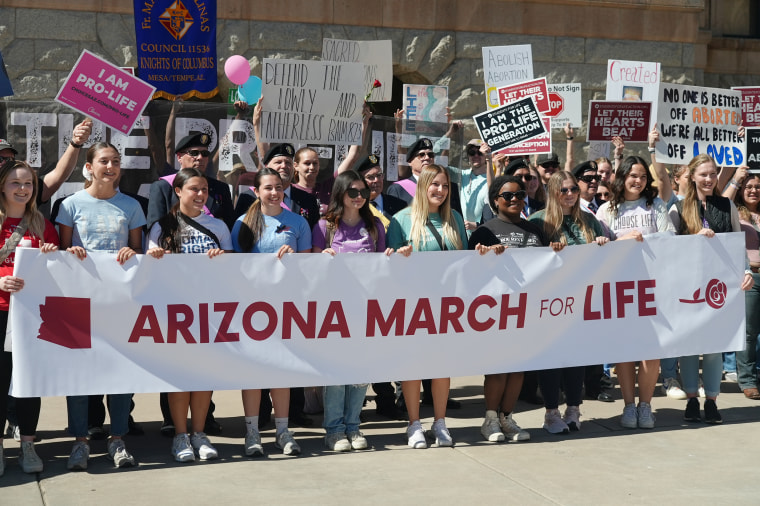
Ramifications for the presidential race
Major political ramifications come along with the battle over the measure.
“The abortion initiative could be the thing that absolutely propels Joe Biden to a win in Arizona, it is probably his only hope,” said Barrett Marson, a Arizona GOP political consultant. He predicted the measure could be Biden’s “saving grace.”
The same dynamic could also play out in the Senate race, conceivably with control of the Senate in the balance.
Incumbent Sen. Kyrsten Sinema, an independent, hasn’t said whether she’ll run again. Democratic Rep. Ruben Gallego, an abortion rights supporter, and Republican Kari Lake, an abortion opponent who has emphasized different positions during her runs for public office, have entered the race.
The proposal “can probably only help Ruben Gallego and only hurt Kari Lake,” says Marson.
Also looming over the abortion ballot battle is an Arizona state Supreme Court decision over a 1864 abortion ban that’s still on the books that makes it a felony punishable by two to five years in prison for anyone who performs or helps a woman obtain abortion care. Democratic state Attorney General Kris Mayes is not enforcing the law, but future officials could if it remains on the books. The decision could drop at any moment.
Love, of Arizona for Abortion Access, said the ruling won’t change her group’s strategy heading into November. But a decision to uphold that law could change the mindset of voters heading into November, she added.
“I think what will change is the voters quite frankly, because I think that that will be something that will motivate them to come out and protect abortion in Arizona,” said Love.
Source: | This article originally belongs to Nbcnews.com


